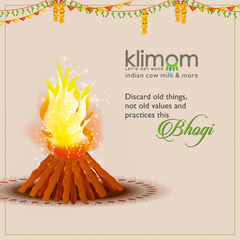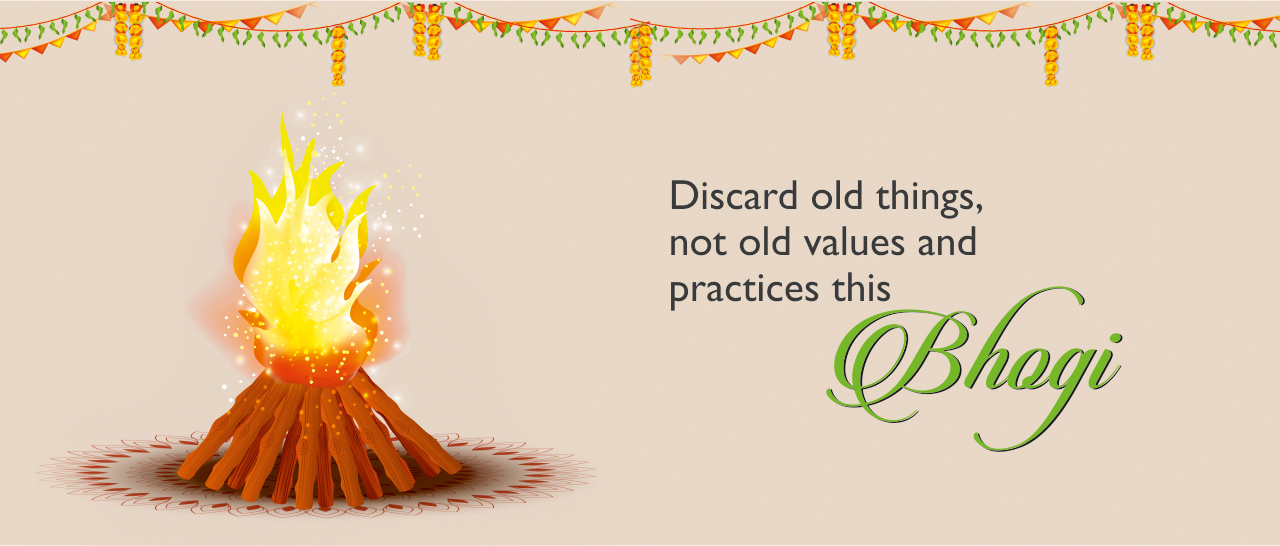Let’s change – this time to our original form!

Bhogi Festival or Lohri marks the beginning of Magha month and is said to signify the migration of sun to a different tropic. Part of the four-day celebrations of the harvest called Pongal. And the first day is marked to honor Lord Indra, “the God of Clouds and Rains.”
The day ideally begins by lighting a bonfire at dawn using log, solid fuels, and other old wooden- unused furniture in the house are burnt to symbolise that people are preparing to adapt new changes in life.

The harvest remains are also burnt in this fire and people dance around it to enjoy the last lap of winter, which comes to an end with Sankranti or Pongal.
The scientific reasoning for this bonfire could be to get rid of all the insects and worms that enter the house with the farm produce, while also helping the farm folk stay warm during the cold winter hours. Most of these bonfires also have cow dung cakes added to it, which is said to have natural air purifying properties.
Bhogi or Lohri as it is called in the norther part of India is an occasion where all the members of the family come together in celebration of the four-day-long affair. Being a harvest festival, all the four days have great significance to farmers and cattle, for instance, in the southern states, on Bhogi, Gangireddu and Basavanna (men who beg with a bull playing folk tunes on a sannai i.e, a clarinet), visit every household and wish joy upon the members of the family. The family in return pays their respect to the bull by offering it food and clothes, while giving the Basavanna money and food as a token of respect.
On all four days special poojas are performed to even the farming tools like plough, oxen, bulls, and the cattle in the yard, with special reverance being to the cow or the Go Matha as they form the main part of their livelihood.
However, urbanization has led us all away from these beautiful traditions, leaving us far moved from the scientific benefits of each of these festivals. It is time for us to revive these traditions, protect our rich culture, and preserve our heritage and pass it on to the future generations.


